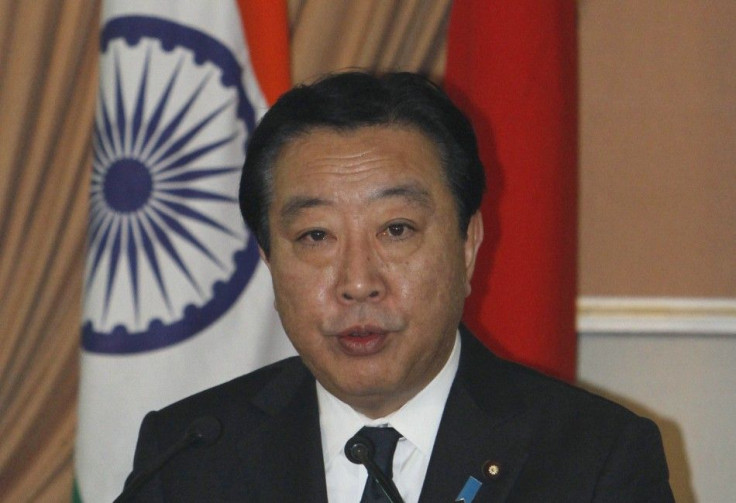Fukushima: Japan PM Vows to See 'Rebirth' of Nuclear Plant

In his traditional New Year's press conference, Japan's Prime Minister Yoshihiko Noda pledged Wednesday to revive the area around the crippled Fukushima nuclear power plant.
Noda said decontamination of the region from the radioactive fallout would be started by authorities; he also ensured compensation and health checks for those affected by the disaster.
These three pillars will bring the rebirth of Fukushima, he said. No timeframe was given by Noda, but government officials have warned that it may take years or decades before the 100,000 displaced residents can return, The Associated Press reported.
The problem of the nuclear power plant in Fukushima is not only a concern for the residents of Fukushima, but to all nations and people around the world, he said. It is fundamental that we provide clear and correct information to the public.
Last month, Japan's government announced that the plant's nuclear reactors had finally reached cold shut-down conditions, and were no longer leaking substantial amounts of radiation. Still, Noda emphasized, the battle against the accident is not over.
The Fukushima Daiichi nuclear plant was severely damaged by the March 11 earthquake and subsequent tsunami, which resulted in mass evacuations as radiation seeped into the surrounding soil, water and forests. It also sparked global fears as the reactor overheated. The nuclear crisis was reportedly the worst since Chernobyl in 1986.
Last week, a government-sponsored investigation found that the response to the crisis was laden with problems and also found that authorities delayed in relaying information about dangerous radiation leaks, the AP wrote. The report was also critical of the officials' use of the term soteigai, meaning outside our imagination, saying it implied a shirking of responsibility, which invites public distrust.
When asked about how he would regain the public's confidence, Noda, who took office in September, said authorities have worked to release accurate information in a timely fashion, and will work, continually, on improving and correcting that information.
This nuclear accident is something that people all around the country are concerned about, so transmitting the information accurately and appropriately is fundamental, he said.
Noda is scheduled to visit Fukushima on Sunday.
© Copyright IBTimes 2024. All rights reserved.











